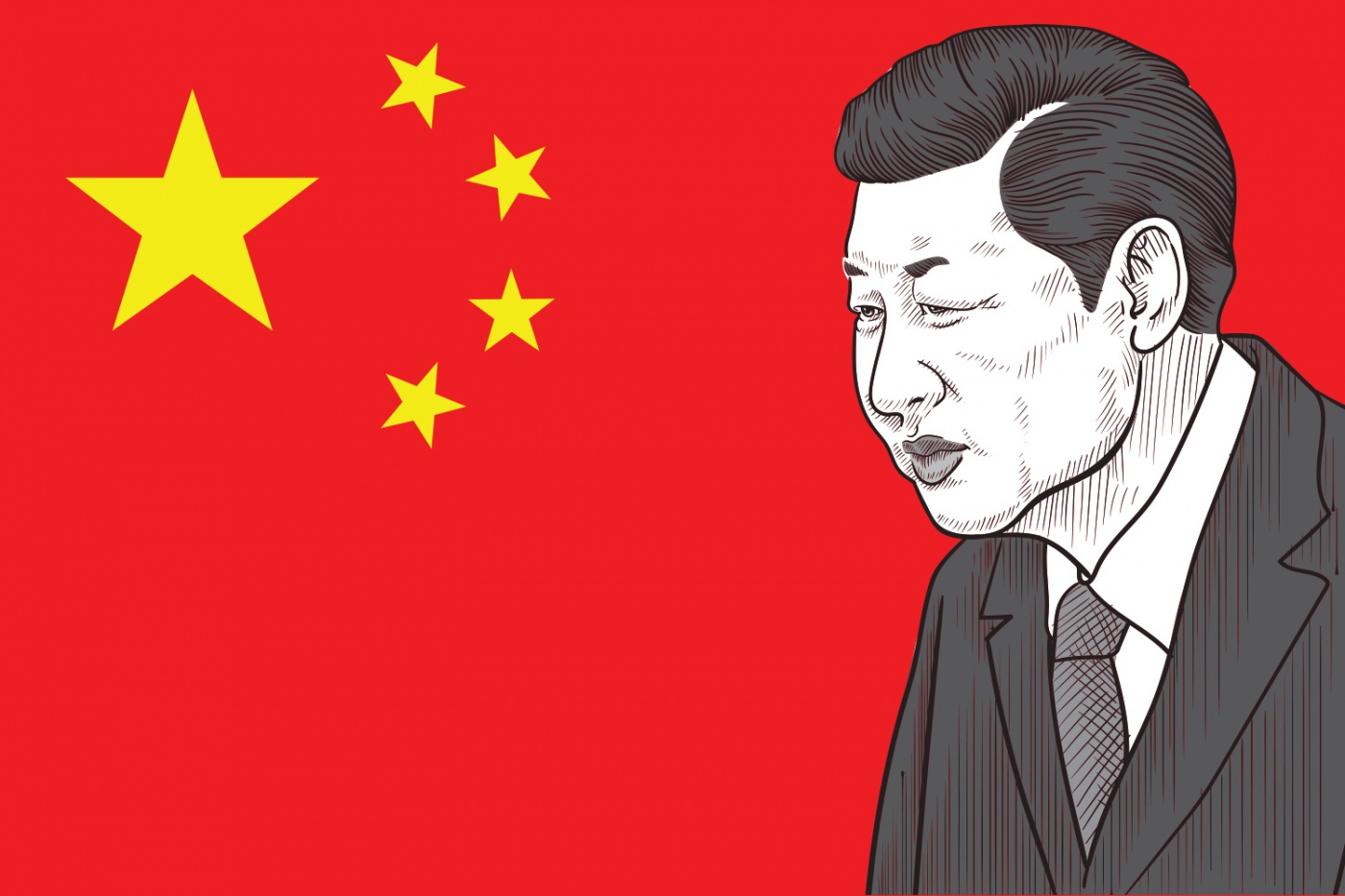The Gods Must Be Crazy, but China Seems to Be Doing Some Things Right
Feeling slightly hypocritical to be writing a piece on the 32nd anniversary of the Tiananmen “incident,” even if it is purely coincidental especially after reading about the arrests of another prominent activist, China making Australian exporters’ lives hell, and Xinjiang recording the largest drop in birth rate in recent history as an “Uyghur Tribunal” convenes to investigate the alleged genocide.
Hey, this is also the week of the 100th anniversary of the Tusla massacre in Oklahoma, annihilating “Black Wall Street” but we just got another video of another African American knocking this Chinese lady out cold in NY last week.
We will not have too much of a political opinion on the matter, but we want to be first to mention that China seems to be doing all the right stuff in terms of the economy, markets and future planning. In case you have not noticed, we are in “The Gods Must Be Crazy” markets. Those who remember the movie would probably find markets crazy even if it is perfectly normal for the younger crowd.
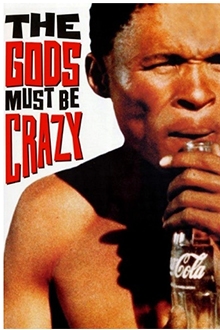
Yes, Wall Street analysts are going on and on about American Exceptionalism as the main theme for 2021 and the Blue Wave that will revive the U.S. and world economies. What can we say about real estate, commodity prices, cryptos, NFTs, meme stocks and central bank insanity?
Someone just sold an invisible sculpture for more the US$18,000 and the NFT of the Gucci bag sold for more than the physical bag, which you can touch and see. Elsewhere, it is being acknowledged that crypto and Robinhood-esque trading platforms are becoming gamified for maximum gambling addiction even as they protest their rights to exist.
Housing prices are rocketing around the world; house price-to-rent ratios are breaking a new record in the U.S. as central bank liquidity in the system has blown past US$100 trillion.
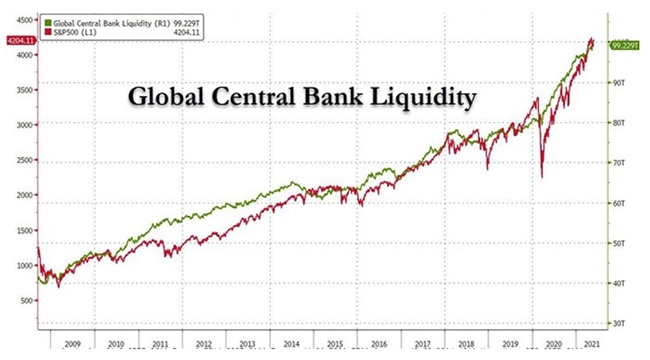 Source: Zerohedge on Twitter
Source: Zerohedge on Twitter
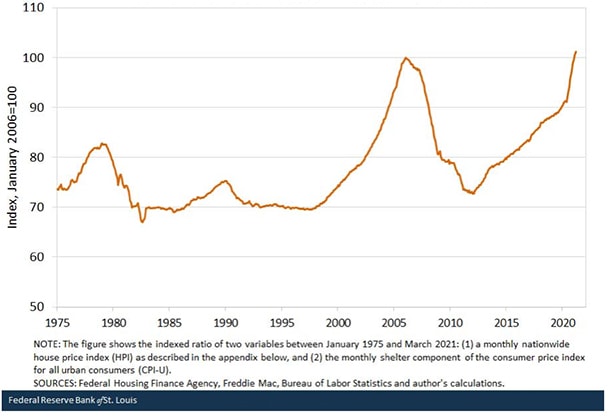
Source: Federal Reserve
For American Exceptionalism in the economy, everything else seems to be going wrong. Throw in the social decay that is eating away at various places, scams, shams and cybercrime, environmental degradation, polarised societies and populist governments, is it any wonder that Generation Z is turning to be a demoralised neurotic bunch?
Make no mistake, China has their own problems as well as they grapple with an ageing population and widening wealth gap but let us list the things they are doing right for once, as objectively as possible.
It starts with the dual circulation strategy that surfaced last year with the long-term plan to develop their domestic market (internal circulation) in an increasingly unstable outside world and place less reliance on its long-time export-oriented strategy (external circulation) for growth and development.
Additionally, there is an emphasis on improving the quality of people’s lives as part of the 14th Five Year Plan for 2021-2025 and the longer-range objectives through 2035.
We shall now list just a few of the news and headlines we collated over the past few months for perspective, listing them under Asset Bubbles and Excessive Speculation, Antitrust and Monopolies and Environment, Population and Well-Being.
Asset Bubbles and Excessive Speculation
China is saying there are bubbles building. First was in March, when the chairman of the CBIRC (China Banking and Insurance Regulatory Commission) stated that he is very worried about risks emerging from bubbles in the global financial markets and the nation’s property sector. Then last week, the vice-chairman of the CBIRC came out to say that the global financial bubble could burst, “potentially resulting in the re-pricing of global assets.”
Real Estate Bubble
China limits issuance of residential mortgage-backed debt to curb property prices (BT)
China slaps new curbs on developers to tame runaway home prices by hitting them where they hurt most: bank loans (SCMP)
CBIRC Warns Small Banks to Rein In Property Lending. The CBIRC will punish lenders that help borrowers to circumvent regulations prohibiting the use of business loans to buy real estate (Regulation Asia)
Chinese financial regulators are looking into alleged related-party transactions (that crosses Beijing’s regulatory “three red lines”) between property developer China Evergrande Group and HK-listed Shengjing Bank Co., according to WeNews, a premium service of Caixin (Bloomberg)
Commodities Speculation
China’s banking regulator has banned banks from selling commodities-linked products to retail buyers and has asked lenders to unwind their books for these products, to curb investment losses amid volatile commodity prices (Reuters)
China Targets ‘Speculators and Hoarders’ to Stop Commodity Boom. The government will show “zero tolerance” for monopoly behaviour and hoarding, the National Development and Reform Commission said after leaders of top metals producers were called to a meeting in Beijing with multiple government departments on Sunday. (Bloomberg)
CSRC (China Securities Regulatory Commission) paying great attention to fluctuations in commodity prices recently (Reuters)
Cryptocurrency Speculation and Mining
The Chinese capital city of Beijing is conducting a check on data centres involved in cryptocurrency mining to better understand their impact on energy consumption, according to sources and a document seen by (Reuters)
China Securities Journal (opinion piece) calls for tighter regulation of cryptocurrency trading (Forexlive)
China has banned financial institutions and payment companies from providing services related to cryptocurrency transactions, and warned investors against speculative crypto trading (Reuters)
State-backed financial associations have warned their members to stay clear of any financing activities related to popular cryptocurrencies (SCMP)
Chinese province sets up hotline to report suspected crypto miners. Move comes as Beijing’s crackdown prompts volatility in global bitcoin trading (FT)
China reiterates its call for a crackdown on bitcoin mining and trading as the country vows to “resolutely” prevent and control financial risks, the State Council says in a statement late Friday (Bloomberg)
Chinese Economist on propaganda CGTV Says if Bitcoin Is Widely Adopted: ‘We’re All Going to Die, This Is Not a Joke’ (News.Bitcoin)
Xinhua News, China’s highest-level official media: If Bitcoin is only used as a virtual commodity, Chinese have their own rights to participate. If people want huge returns and the exchange attracts a large of investors, the government needs to crack down (Baijiahao.baidu)
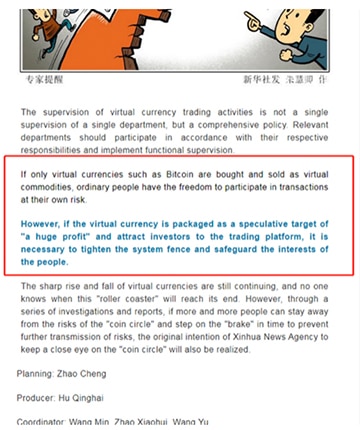
Bitcoin and most other top cryptocurrencies fell on Sunday on concerns that there may be a further crackdown on the industry in China. Chinese social-media service Weibo suspended some crypto-related accounts—when trying to view them, a message comes up that says the accounts have been reported for violations of laws, regulations or Weibo rules (Bloomberg)
Debt Crisis and Stability
After a quarter of record defaults, China is reining in the runaway train of borrowings as the country faces a wall of maturity in the next 12 months as the country cleans up the acts of the LGFV and SOE borrowings. The markets hang in limbo over the fate of China Huarong, one of the four lynchpins of distressed debt management in China that has become distressed.
China’s central bank asked the nation’s major lenders to curtail loan growth for the rest of this year after a surge in the first two months stoked bubble risks, according to people familiar with the matter (Bloomberg)
State-owned capital manager, China Reform Holdings Corp, plans to set up a series of funds that will invest in state-owned enterprises to help drive corporate reform (Caixin)
Bond issuance by China’s local government financing vehicles (LGFVs) hit a new record low in May amid tightening regulations and net financing via the type of bonds slipped into negative territory for the first time in nearly three years (Yuantalks)
PBOC is reportedly to increase tolerance of bad loans in the agricultural sector and will encourage banks to issue agricultural financial bonds (Newsquawk)
Antitrust and Monopolies
It started with Ant Financial last year and pulling the plug on one of the largest IPOs of the year at the eleventh hour but China is doing something about it with a vengeance. Fines in the billions instead of paltry millions that the West metes out—and as far as we can tell, it does look like we are just at the incipiency of the antitrust campaign.
China antitrust: Tencent’s outsized share of online music-streaming market could put its holdings at risk (SCMP)
Beijing orders Meituan, Didi Chuxing and other ride-hailing providers to give drivers a fair share of revenue (SCMP)
Alibaba antitrust investigation: Beijing slaps e-commerce giant with record US$2.8 billion fine in landmark case (SCMP)
Platforms operated by e-commerce giant JD.com, handset maker Xiaomi, ride-hailing app Didi Chuxing and food delivery firm Meituan were among those to face the regulators. They were ordered to set up financial holding companies, a move that tightens capital requirements (BBC)
Meituan founder Wang Xing has donated a $2.3 billion stake in the Chinese food delivery giant to his own philanthropic foundation, joining other internet billionaires in giving back as Beijing mounts a crackdown on the tech sector (Bloomberg)
Tencent Holdings Ltd. founder Pony Ma pledged $7.7 billion toward curing societal ills and lifting China’s countryside out of poverty, echoing Xi Jinping’s priorities at a time Beijing is tightening its grip on internet giants (Bloomberg)
Ant Group receives Chinese approval for consumer finance spinoff. It follows a “rectification” plan agreed on by Ant Group and Chinese financial authorities (Nikkei)
Environment, Population and Well-Being
Environment
The largest polluter of the world is making good with a pledge to reuse 60 per cent of its urban household waste by 2025, up from the commitment of 50 per cent last year, rolling out regulations to make people sort their trash in wide-sweeping reforms that aim for “carbon neutrality” by 2060 after President Xi committed to new and stronger climate targets last year.
Nonetheless, we remain critical of their dams, which has caused much pain to the Mekong farmers in Cambodia, Laos, Thailand, Myanmar and Vietnam and we are highly worried about their new plan to dam up the Himalayas as part of their green initiatives which would be extremely worrying for India.
While we admit that we are not avid followers of China’s climate and environmental exploits, it does look like it is a step in the right direction.
Population and Well Being
Introducing the three-child policy is perhaps a tad late for the rapidly ageing population—it is actually just too expensive. There is also the growing divide between the have’s and have-not’s as regional policies exacerbate an education divide as well. But punishing billionaires (including kidnapping and executing errant ones) and recognising the unsung heroes of their gig economy is a start.
Going back to the efforts mentioned above on real estate and antitrust to make a fairer system (besides making sure cryptos and commodity speculation do not bankrupt them), perhaps it is not a coincidence that Caixin decided to decry the “lying flat” (躺平) movement of malaise in the younger generation this weekend about being beaten up by society and life and yearning for a more relaxed life.
And the country is following through, authorities in China have ordered gaming platforms to stop underage users playing online between the hours of 10 p.m. and 8 a.m. every day to make sure primary and middle school students get enough sleep.
The government has also started a crackdown on its online education sector, “forcing once high-flying startups to mothball plans for multi-billion-dollar initial public offerings this year.” President Xi suggested that “the surge in after-school tutoring was putting immense pressure on China’s kids, signalling a personal interest in curbing excesses.” Reuters reported that new policies could include a moratorium on weekend classes for mental well-beings.
This is as China’s graft busters begin to pursue very old cases against long-serving, former and even dead officials to make good their promise for a better quality of life for the people.
We have not even scratched the surface and we know it does not look perfect but at least it is not as crazy when we look at the markets and the world today. There is a lot more to say about China and its attempts to improve but let us go along with the ride, which may not bode that well for shareholders and bondholders, in our opinion.
It is perhaps inconsiderate of us to be talking about this on the anniversary of that unforgettable tank man that left a rather indelible mark on our formative young minds back then. It is easy for us because we do not live in China and the Singapore government has always been getting it right so far.
Yet, it is exciting because everything else about the markets, the economy and society is looking quite wrong, that it is nice to see some action taken by someone somewhere.
